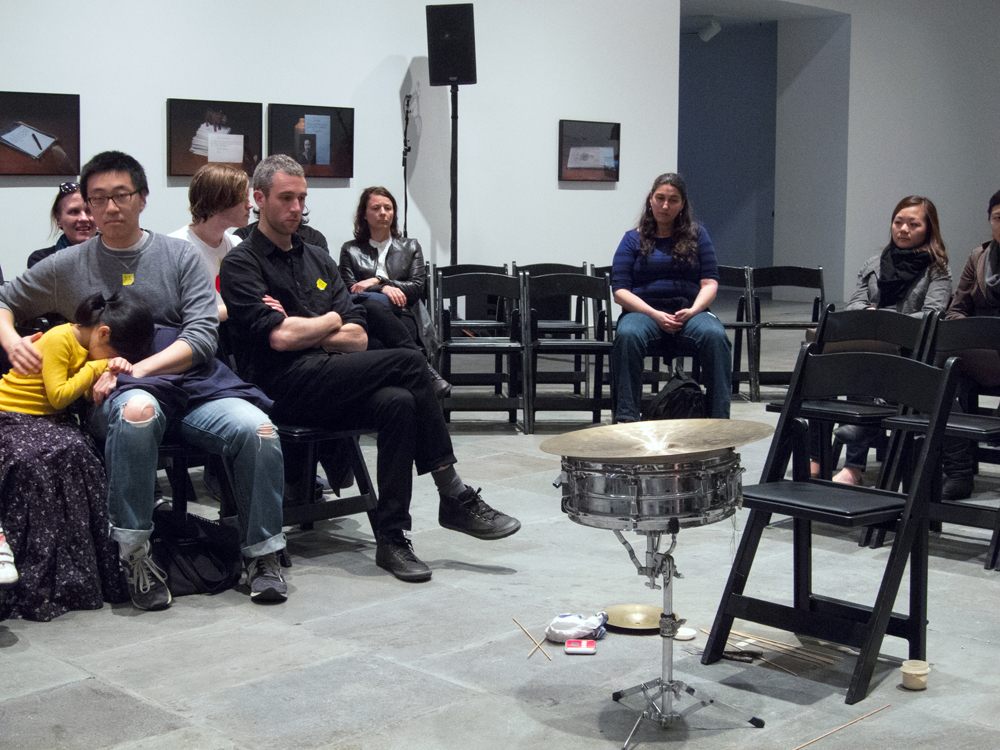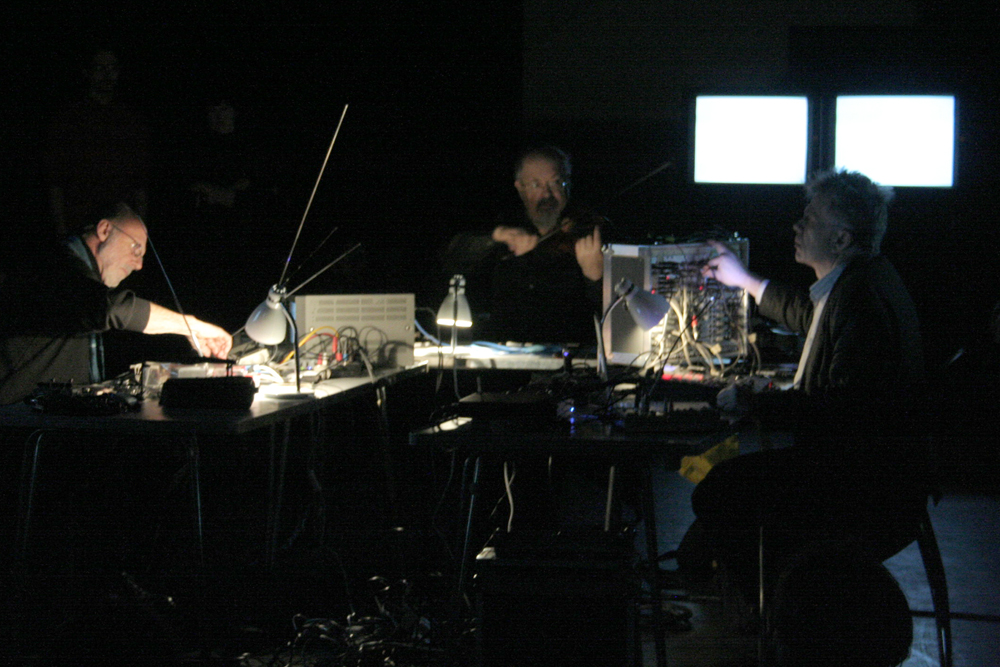
So Is This
Michael Snow
Investigate film as language, via the language of film reduced to the basic units of film and language. A film as text in which each frame is a single word.
Arika have been creating events since 2001. The Archive is space to share the documentation of our work, over 600 events from the past 20 years. Browse the archive by event, artists and collections, explore using theme pairs, or use the index for a comprehensive overview.

Investigate film as language, via the language of film reduced to the basic units of film and language. A film as text in which each frame is a single word.

Percussion used to explore the social construction of space

This event honoured those individuals who achieved the status of Icon during the period of 1986-1990.
Edinburgh. Sinewave manipulating Giant Tank-ette goes head-to-head with Decaer Pinga’s first lady of noise.

With a signature spartan sound and long term preoccupation in structural tactics (subtle shifts in density, drawn out stasis) Polwechsel blur the boundaries between individual instruments.

Our favourite Lancashire-born autodictact asks what’s political about the tension between the individual and the collective in free jazz.

The second of two short film programmes featuring works that blur the boundaries between music and film from artists who cross and redefine those long held divisions. This programme highlights contemporary works.

A sound diffusion piece by Glasgow University’s Musica Electronica, and a further selection of electroacoustic performances.

Can a collective performance of NourbeSe’s poem of black life as it exceeds containment enact alternative forms of selfhood that emerge in and out of African diasporic experience?

An immersive environment where sound is looped through oscillators, radio, guitar pick-ups and video amps to create dense strobing images and colours

Junko’s screaming vocal in a nuanced, piercing duo with Urabe’s fuming and convulsive saxophone, far removed from the codes of musical tradition.

ACCESS: SOUND FILE A day-long salon accompanying KYTN focusing on sound art.